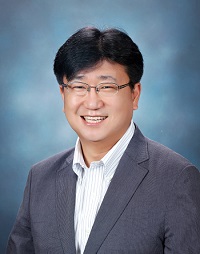Media Center
A multimedia mosaic of moments at GIST
GIST Excellence
GIST Professor Byoung Hun Lee to direct the government"s ultralow-power semiconductor development project
- 엘리스 리
- REG_DATE : 2016.07.26
- HIT : 1023
GIST Professor Byoung Hun Lee to direct the government"s
ultralow-power semiconductor development project

GIST Professor Byoung Hun Lee of the School of Materials Science and Engineering will direct the government"s "Four Major Challenges" initiative to promote the development of advanced ultralow-power semiconductor technologies that will be essential for ushering in the next major breakthrough for the internet of things (IoT) era.
The "Four Major Challenges" is a comprehensive government-funded research and development project for the long-term (10 years) development and application of nanotechnology in four critical areas necessary for an IoT-based society: artificial intelligence, assisted living for an aging population, environmental protection, and social welfare.
Professor Byoung Hun Lee, who is also the Dean of International and Public Affairs, will be responsible for the strategic planning and the future development of advanced ultralow-power semiconductor technologies to provide the foundation upon which an IoT-based society can be created. To accomplish this task, future semiconductors will require 1/1000 of the power while having 100 times more processing capabilities than what is currently possible with today"s semiconductor technology, which has not been able to keep pace with advances in big data, cloud computing, virtual reality, and artificial intelligence. Therefore, the development of ultralow-power semiconductor technologies is necessary to efficiently process enormous amounts of data, and the United States, Europe, and China are already aggressively pursuing research and development in this critical area.
Advances in nanotechnology may also be used to significantly improve the performance of the conventional von Neumann computer architecture that uses a central processing unit (CPU), a memory storage unit, and throughput system for transferring data between the CPU and memory. Although CPU performance has increased dramatically over the years, the data transfer bandwidth has not, which can result in an ironic situation where today"s fastest CPUs often remain idle as it has to wait for the incoming data to process. This inefficiency might be addressed by advances in nanotechnology that attempt to mimic neural networks by autonomously reconfigure itself to maximize efficiency. The government has earmarked five billion won in next year"s budget to determine the feasibility of this approach.
Other areas that may benefit from advances in nanotechnology and ultralow-power semiconductor development are smart sensors for biotechnology and environmentally-friendly ultrahigh capacity rechargeable batteries for electric cars. These innovative developments will create new industries that will benefit society while ensuring economic prosperity for Korea. For this reason the government will invest 306.6 billion won by 2024 to ensure that the "Four Major Challenges" have been successfully conquered, and GIST Professor Byoung Hun Lee will have an integral role in that success.